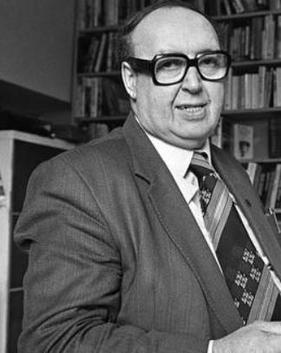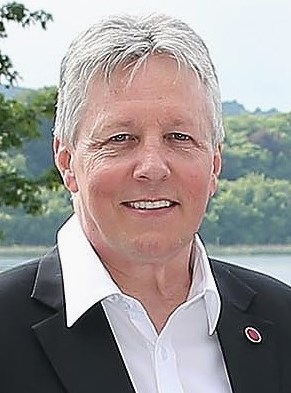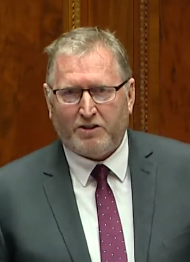Related Research Articles

The Ulster Unionist Party (UUP) is a unionist political party in Northern Ireland. The party was founded as the Ulster Unionist Council in 1905, emerging from the Irish Unionist Alliance in Ulster. Under Edward Carson, it led unionist opposition to the Irish Home Rule movement. Following the partition of Ireland, it was the governing party of Northern Ireland between 1921 and 1972. It was supported by most unionist voters throughout the conflict known as the Troubles, during which time it was often referred to as the Official Unionist Party (OUP).

Terence Marne O'Neill, Baron O'Neill of the Maine, PC (NI), was the fourth prime minister of Northern Ireland and leader (1963–1969) of the Ulster Unionist Party (UUP). A moderate unionist, who sought to reconcile the sectarian divisions in Northern Ireland society, he was a member of the Parliament of Northern Ireland for the Bannside constituency from 1946 until his resignation in January 1970; his successor in the House of Commons of Northern Ireland after a by-election was Ian Paisley, while control of the UUP also passed to more hard-line elements.

James Henry Molyneaux, Baron Molyneaux of Killead, KBE, PC, often known as Jim Molyneaux, was a unionist politician from Northern Ireland who served as leader of the Ulster Unionist Party (UUP) from 1979 to 1995, and as the Member of Parliament (MP) for South Antrim from 1970 to 1983, and later Lagan Valley from 1983 to 1997. An Orangeman, he was also Sovereign Grand Master of the Royal Black Institution from 1971 to 1995, and a leading member of the Conservative Monday Club.

Mid Ulster is a parliamentary constituency in the UK House of Commons. The current MP is Cathal Mallaghan, of Sinn Féin, who was first elected at the 2024 election.
The Northern Ireland Labour Party (NILP) was a political party in Northern Ireland which operated from 1924 until 1987.

Patrick Joseph "Paddy" Devlin was an Irish socialist, labour and civil rights activist and writer. He was a founding member of the Social Democratic and Labour Party (SDLP), a former Stormont MP, and a member of the 1974 Power Sharing Executive.
John Beattie was a Northern Ireland Labour Party (NILP) politician from Northern Ireland. He was a teacher by profession. In 1925, he became a Member of the Northern Ireland House of Commons for Belfast East. He represented Belfast Pottinger from 1929. At one point he served as leader of the NILP.
Henry Cassidy Midgley, PC (NI), known as Harry Midgley was a prominent trade-unionist and politician in Northern Ireland. Born to a working-class Protestant family in Tiger's Bay, north Belfast, he followed his father into the shipyard. After serving on the Western Front in the Great War, he became an official in a textile workers union and a leading light in the Belfast Labour Party (BLP). He represented the party's efforts in the early 1920s to provide a left opposition to the Unionist government of the new Northern Ireland while remaining non-committal on the divisive question of Irish partition.
Independent Unionist has been a label sometimes used by candidates in elections in the United Kingdom, indicating a support for British unionism.
The Federation of Labour (Ireland) was a small nationalist political party in Northern Ireland.
The Northern Ireland Conservatives is a section of the United Kingdom's Conservative Party that operates in Northern Ireland. The Conservatives are the only major British party to field candidates within Northern Ireland and typically contests only a fraction of seats in elections. The party won 0.03% of the vote in the 2022 Northern Ireland Assembly election and 0.1% of the vote in the 2024 United Kingdom General election in Northern Ireland.
Albert Horatio McElroy was a minister of religion and politician in Northern Ireland.
Robert Getgood OBE was a politician and trade unionist in Northern Ireland. He was born in Ballymacanallen, Co Down, the son of George Getgood, a cobbler, and Eliza Jane Patton. In 1921 he married Annie Thompson.
The 1952 Belfast South by-election was held following the resignation of Ulster Unionist Party (UUP) Member of Parliament, Hugh Gage.

The 2011 Northern Ireland Assembly election took place on Thursday, 5 May, following the dissolution of the Northern Ireland Assembly at midnight on 24 March 2011. It was the fourth election to take place since the devolved assembly was established in 1998.
Alan Carr is a former trade unionist and politician from Northern Ireland.

Douglas Ricardo Beattie is a British politician and former member of the British Army, who has been leader of the Ulster Unionist Party (UUP) since 27 May 2021. He has been a Member of the Northern Ireland Assembly (MLA) for Upper Bann since 2016. He is characterised as a 'progressive' and 'liberal' unionist.

The 2024 general election in Northern Ireland was held on 4 July 2024, with all 18 Northern Irish seats in the House of Commons contested. The general election occurred after the recently completed constituency boundaries review.